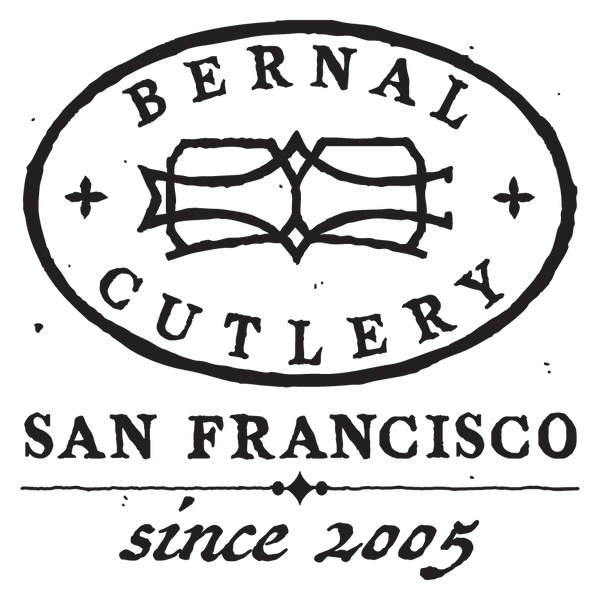-
Kitchen Knives
-
Bernal Cutlery House & Collaborations
- Greenfield Series
- Bernal Cutlery Black Label
- INVICTUS - K Sabatier | Butcher's Guide
- Nouvel Ideal - K Sabatier
- GS+ Ko Sabaki - Konosuke
- Small Chef - Rolin Knives
- Stainless Clad - Tosa Tadayoshi
- Knife Rolls - ILE
- Pizza Cutter - F+W | Prince
- Sakai Style - Blenheim Forge
- Sori Series - Sakai Kikumori
- Kurouchi - Nakagawa | Sakai Kikumori
- Shop by Use
- Shop by Shape
- Shop by Category
-
Shop by Maker
- Ashi Hamono
- Astral Works
- Au Nain
- Au Sabot
- AZ Knives
- Bernal Cutlery Manufactory
- Blenheim Forge
- Chazeau Honore
- Eichenlaub
- Florentine Kitchen Knives
- Friedr. Herder
- Gihei Knives
- Goyon-Chazaeu
- HADO
- Hatsukokoro
- Hitohira
- J Adams
- John Nowill & Sons
- K Sabatier
- Kaji Bei
- Kanehide
- Kenji Togashi
- Kogetsu
- Konosuke
- MAC Knife
- Masakane
- Morihei
- Mutsumi Hinoura
- Myojin Naohito
- Néron
- Naozumi
- Nigara Hamono
- Pallares
- Roland Lannier
- Rolin Knives
- Sakai Kikumori
- Satoshi Nakagawa
- Seki Kanetsugu
- Tagai Sanjo
- Tanabe Tatara
- Tosa Tadayoshi
- Tosa Tsukasa
- Tsukasa Hinoura
- Wakui
- Yoshikane
- Knife Storage
- Sayas & Guards
- Knife Care
- Trade In
- Bargain Bin
-
Bernal Cutlery House & Collaborations
- Knives & Tools
- Sharpening
-
Kitchen Tools
-
Shop by Brand
- Ambrogio Sanelli
- Andre Verdier
- Ateco
- Au Nain
- Chefs Press
- Due Buoi
- Dexter Russell
- F. Dick
- Geo Yukio Hattori
- Gestura
- Hardmill
- Hitohira
- Inside Line Equipment (ILE)
- Jones Cutting Boards
- Kagetsu Donabe
- KYOTOH Donabe
- Kuramoto
- Lancaster
- Lundy Way
- MAC Knife
- Made In
- Netherton Foundry
- Noda Horo
- Nordic Ware
- Pallares
- Peugeot
- Prince
- Silky
- SILPAT
- Shop by Use
- Cookware by Material
- Cookware by Type
- Prep Tools
- Cutting Boards
- Utensils
- House & Kitchen Scissors
- Softgoods
- Chef's Press
- Cleaning Supplies
-
Shop by Brand
- Tableware
- Vintage
- Pantry
- Books & Gifts
- Services & Info
or
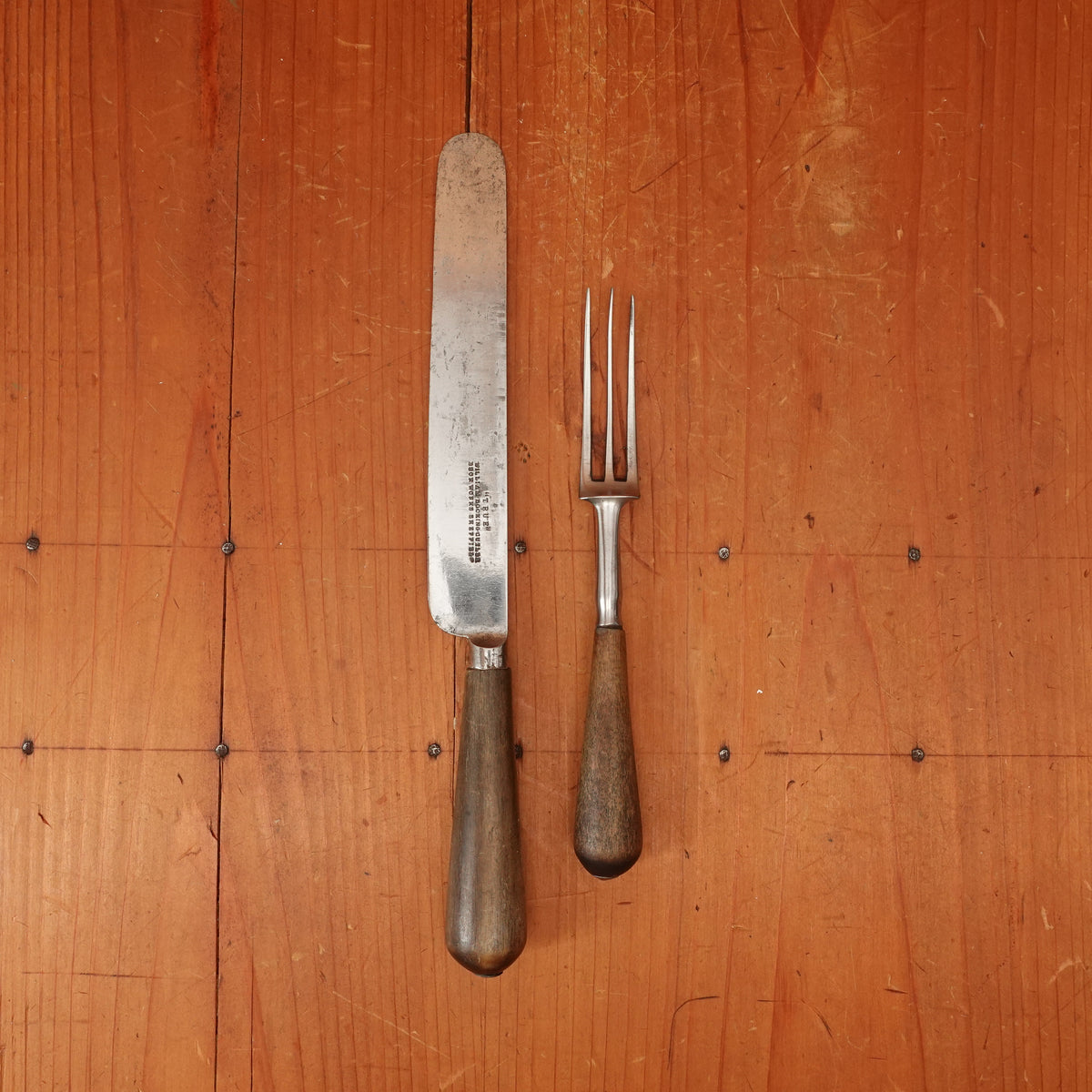
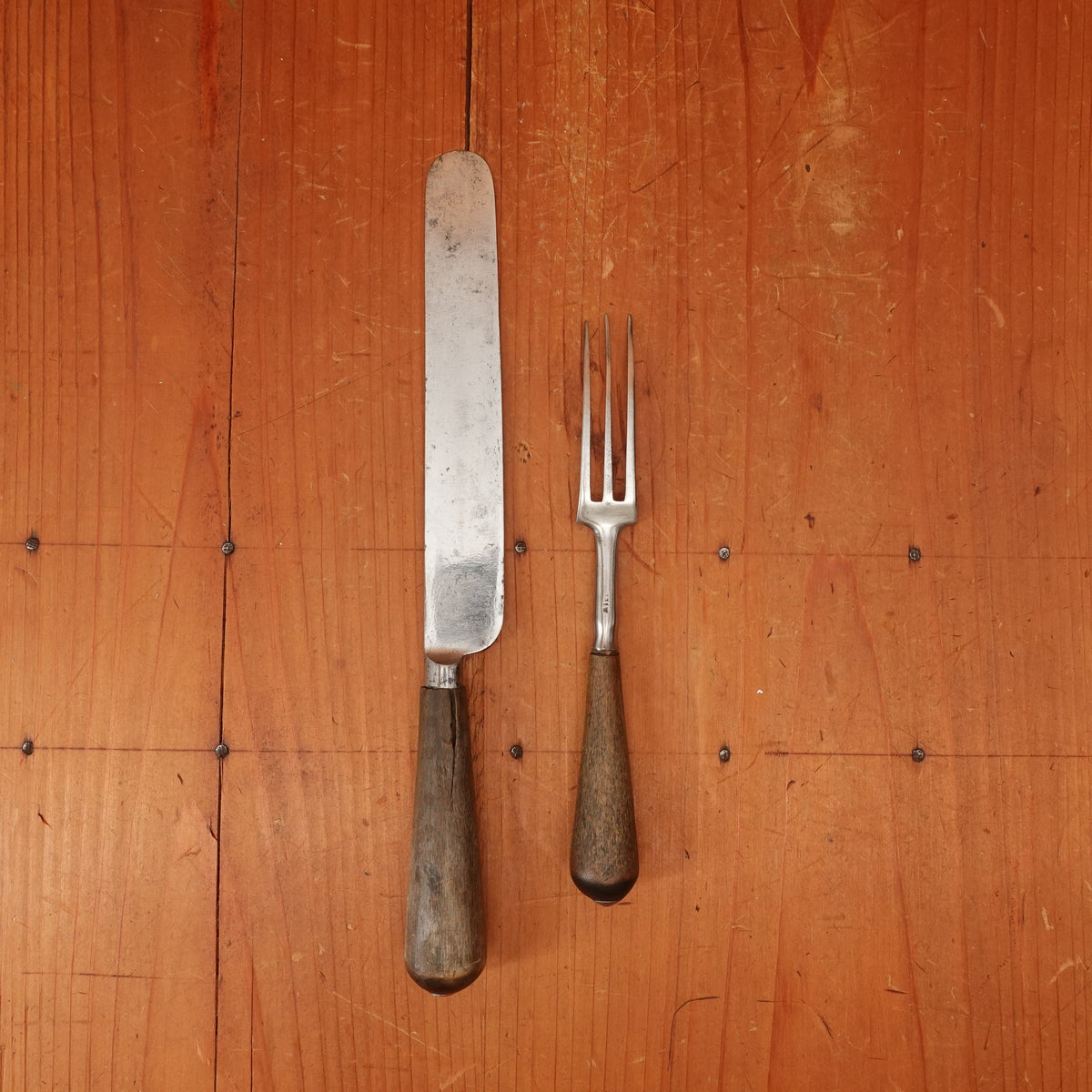
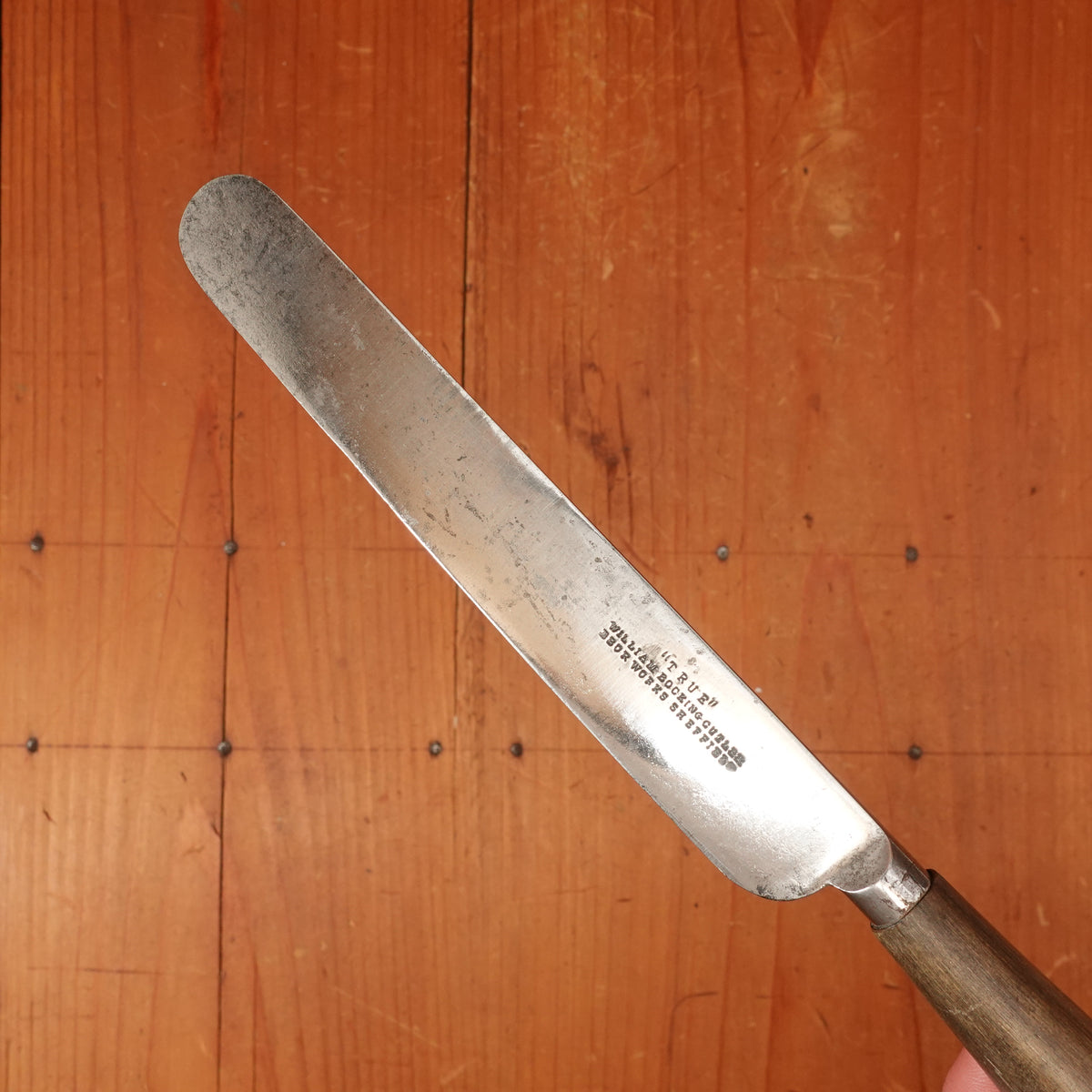
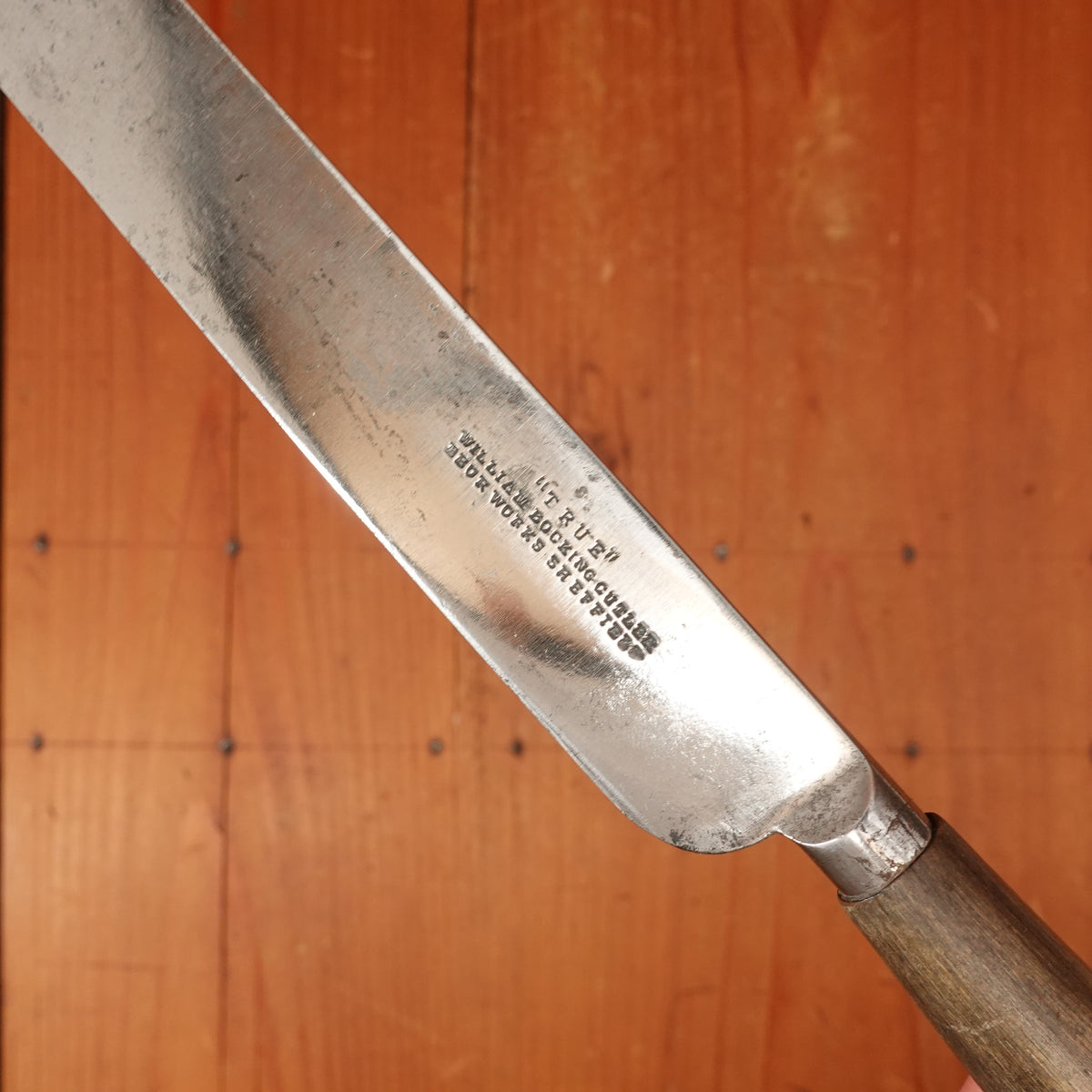
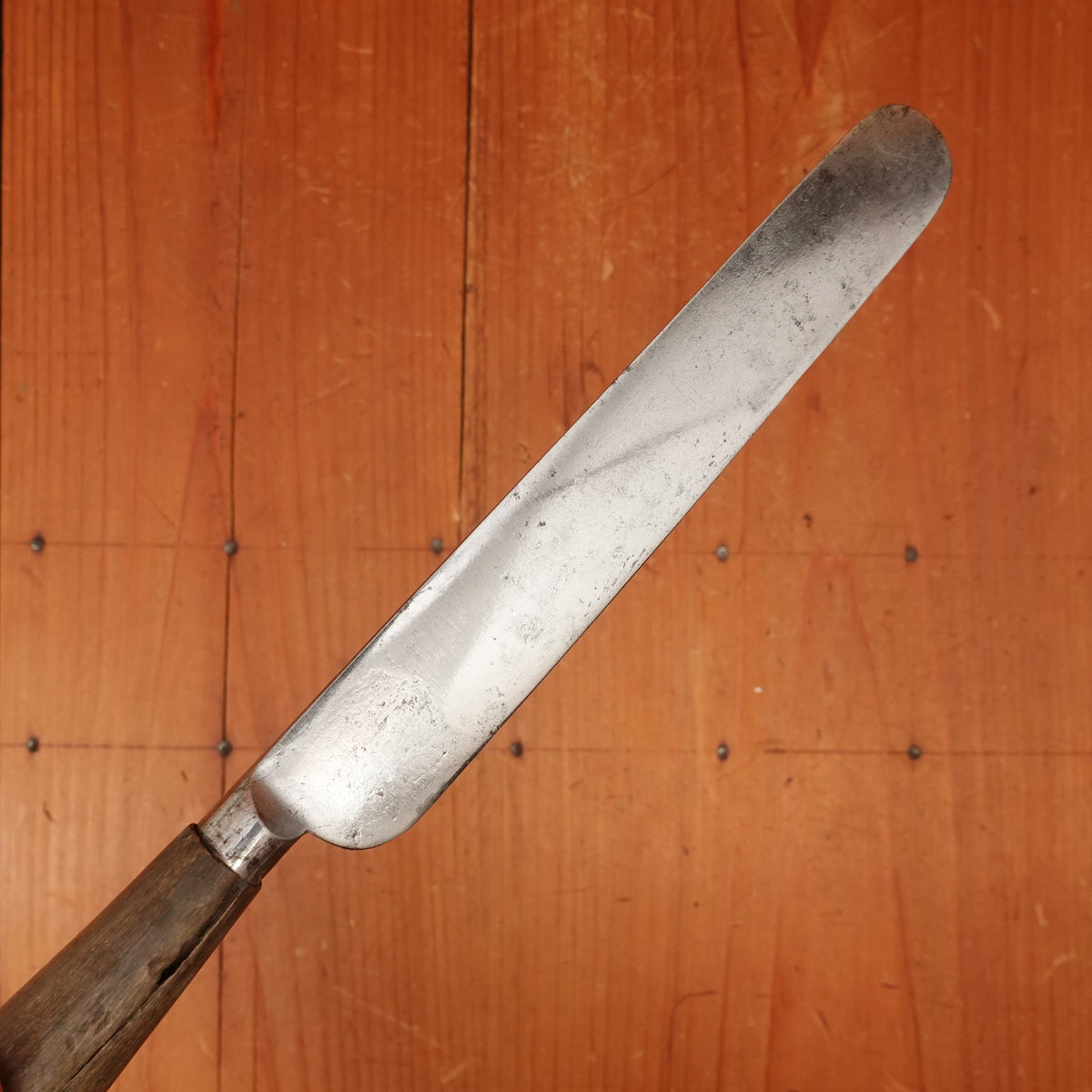
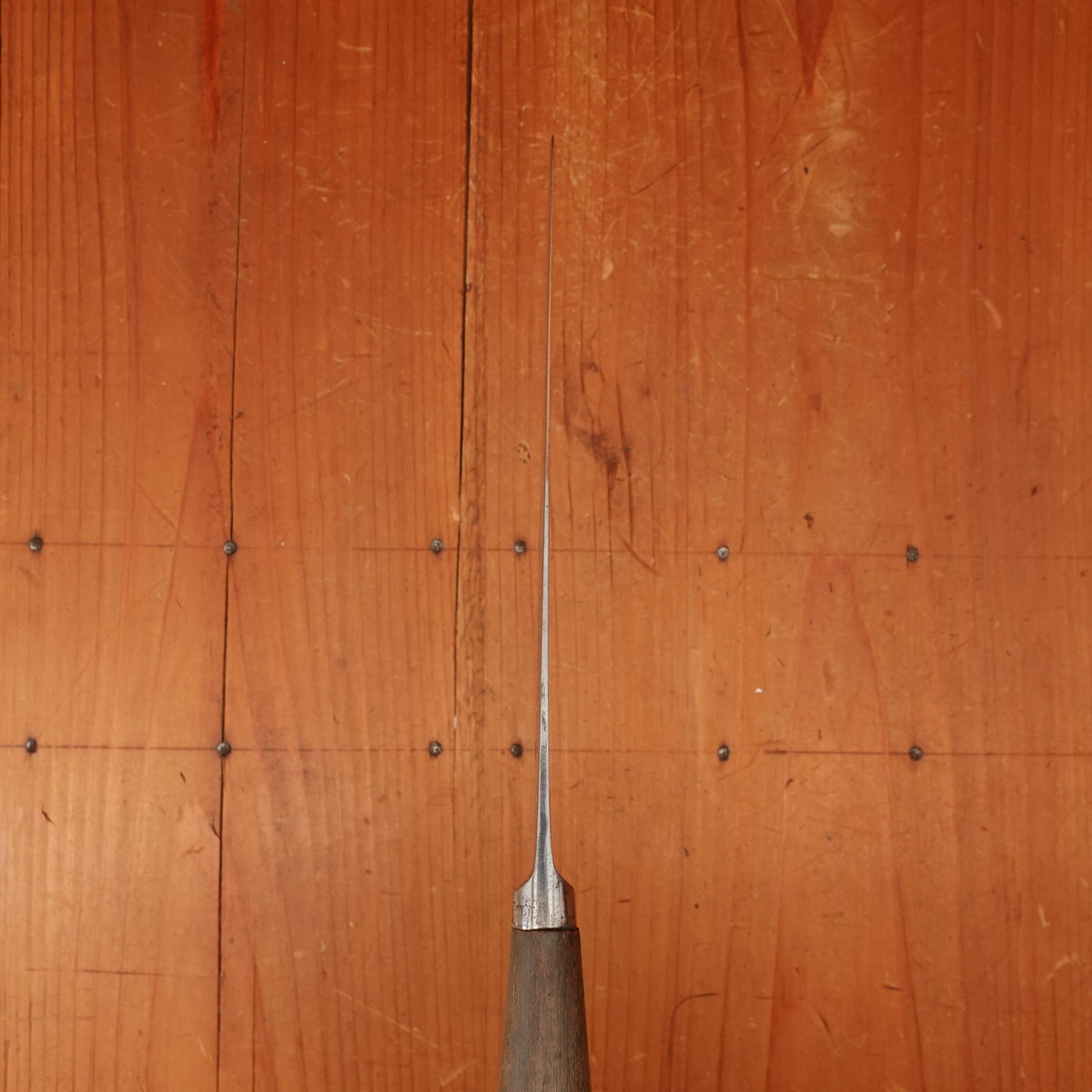
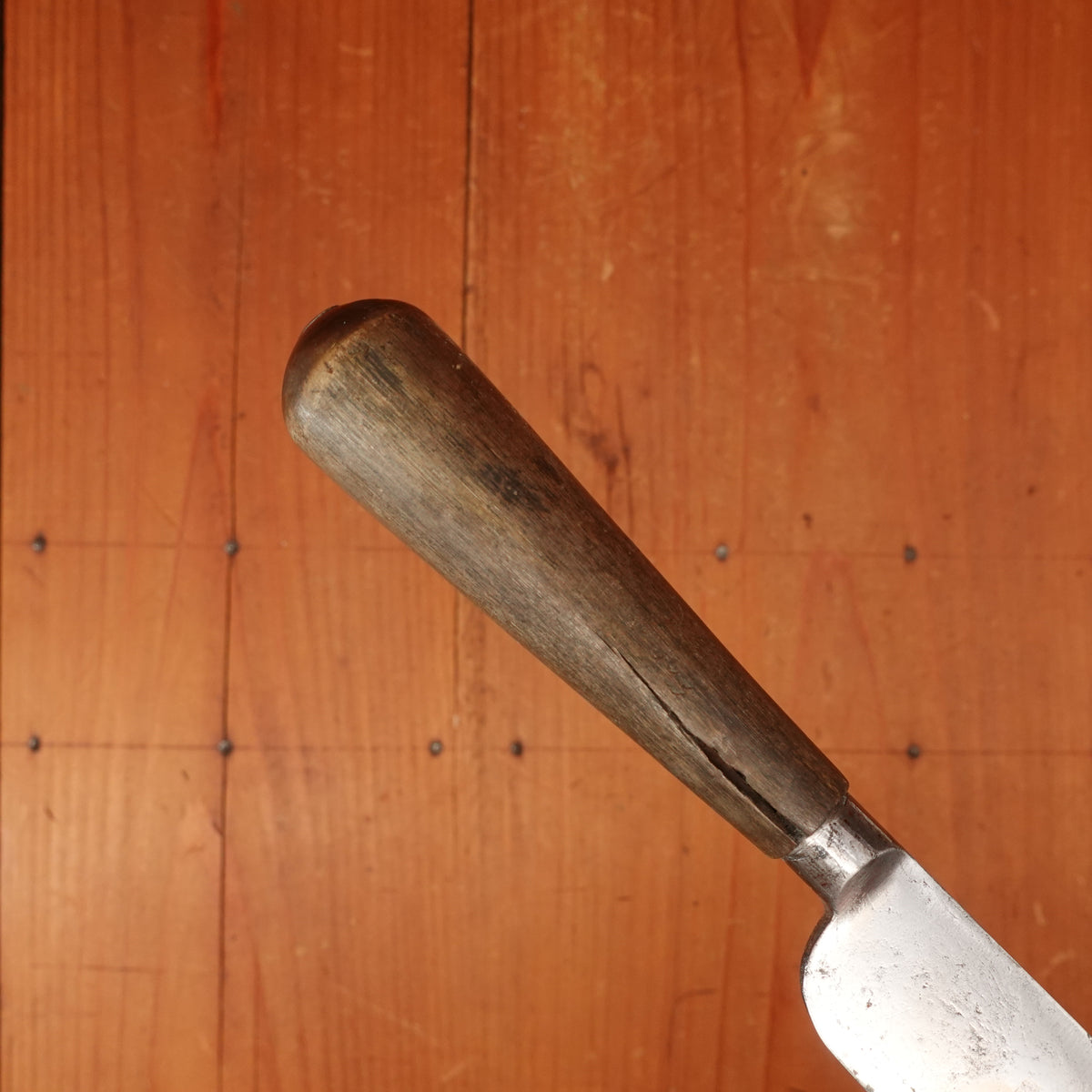
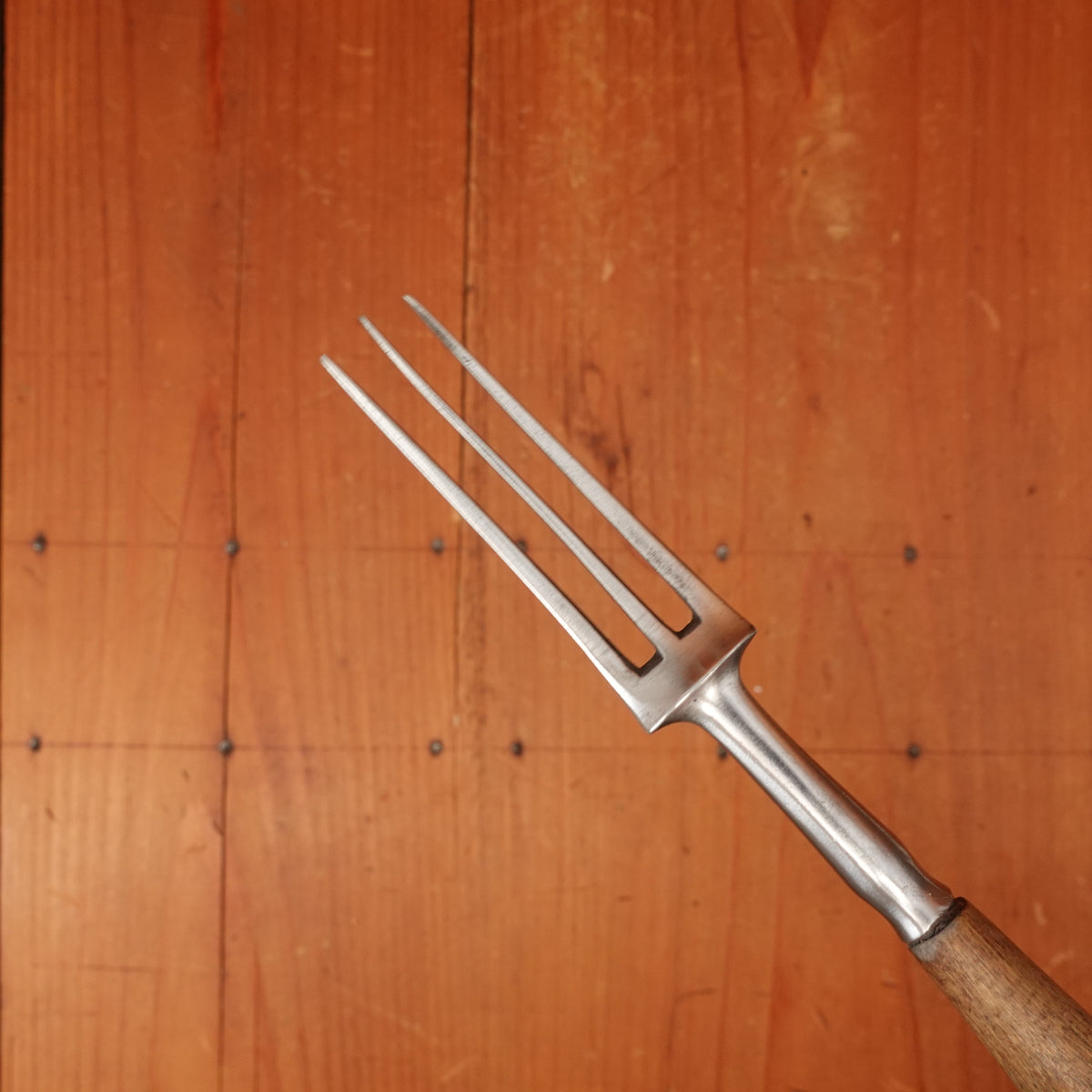
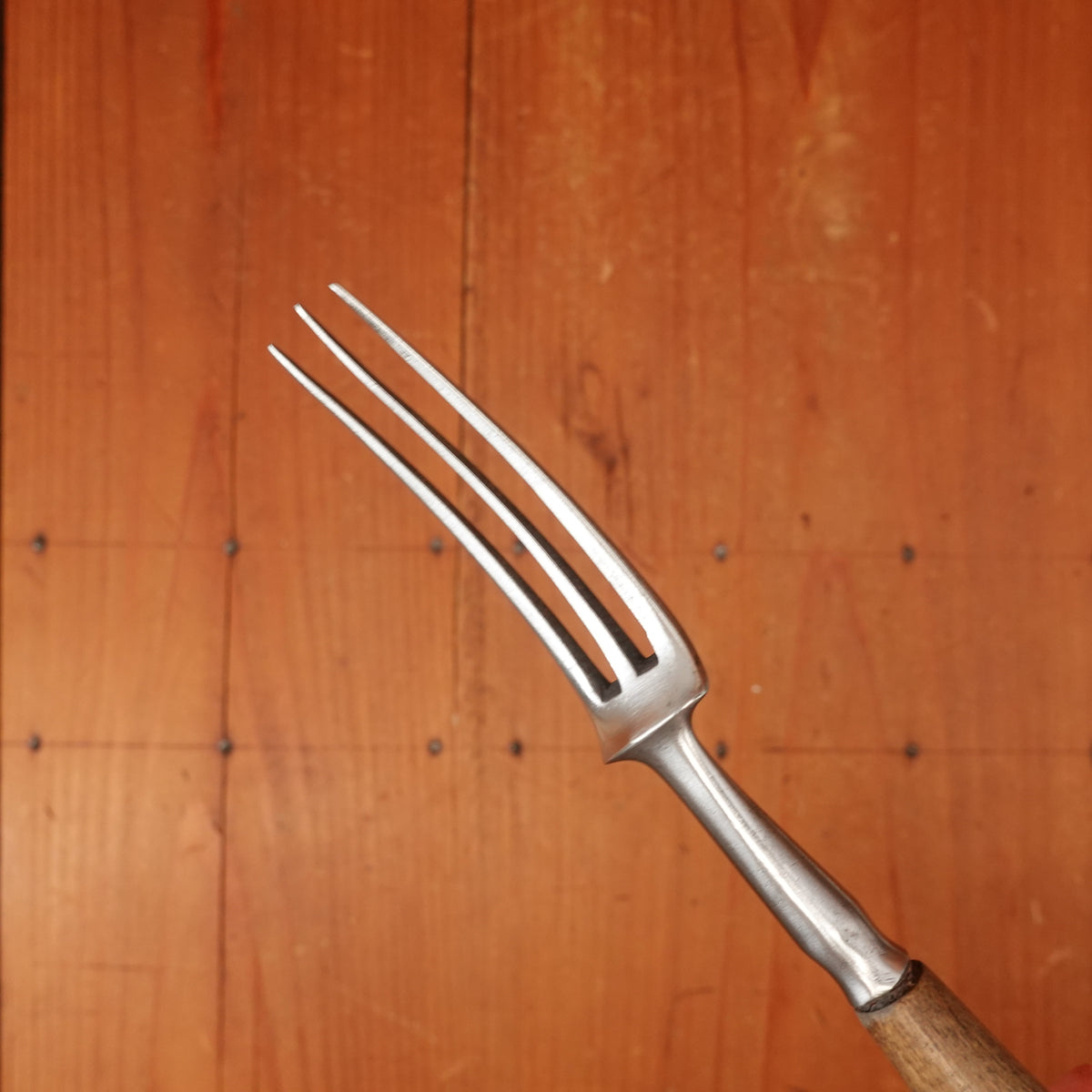
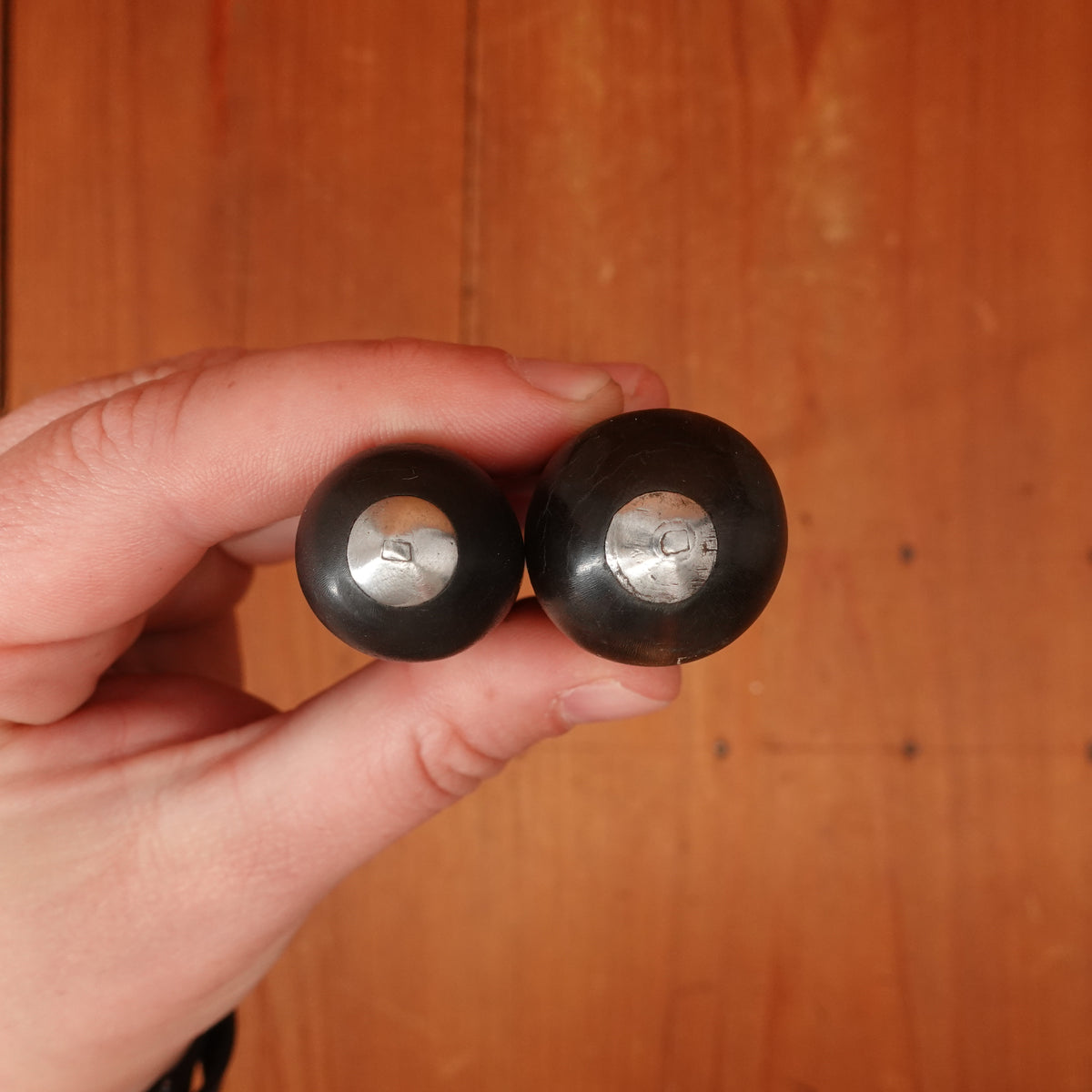
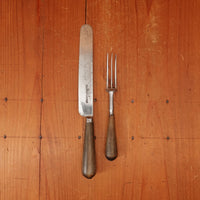
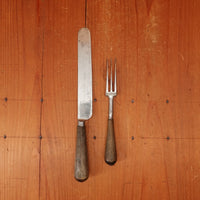
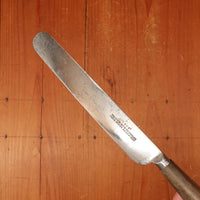
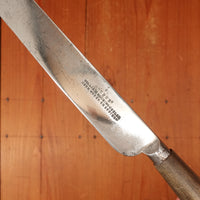
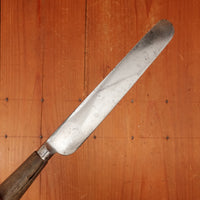
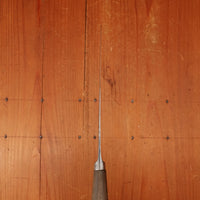
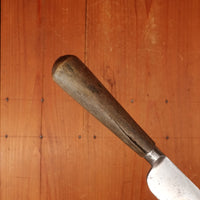
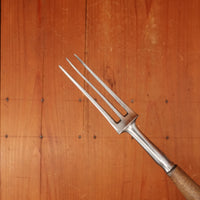
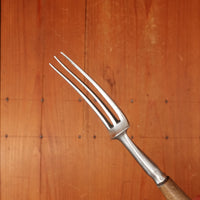
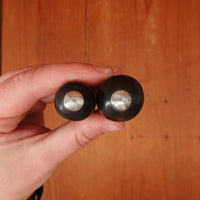
William Bocking "True" Ebor Works Table Knife Set Double Shear Steel Turned Horn Sheffield 1885-approx 1910
-
Regular Price
-
£68.40
-
Sale Price
-
£68.40
-
Regular Price
-
Sale
Sold Out
-
Unit Price
- /per
- Regular Price
- £68.40
- Sale Price
- £68.40
- Regular Price
- Unit Price
- /per
Late 19th century style table knife and three tined fork marked "True" William Bocking Cutler Eboy Works Sheffield with forged carbon steel blade and tines set on turned horn handles with a through tang capped with an iron end cap.
William Bocking was the son of George Bocking (who also had a brother in the cultery manufacturing business in Sheffield named William), William purchased the trade mark "True" in 1885 which identifies this as by the younger William. While the name Ebor Works suggests a large factory this was one of the many workshops employing up to several dozen workers, somewhere in between the 'little mester' shops of single craftsperson /small family shops and the larger factories in Sheffield.
William Bocking advertised that he used double shear steel in his table and pocket knives and this is consistent with the construction of the knife which shows a 'puddle weld' near the bolster at the beginning of the blade opposite side as markings, almost looking like a thumbprint, this is where the hard shear steel is forge welded to the mild steel or iron bolster and tang. Forks were forged in a small mold and ground by hand and knife blade forged by hand to shape and then hand ground on a saddle grinder to finish the geometry being finished on smaller buffing wheels. Many of these process were in use for hundreds of years in Sheffield which really held its strength through the massive amount of low priced skilled labor available in Sheffield.
Not a fine set, this would have most likely been in use in a household with a relatively small amount of cutlery, Sheffield made table wear like this was inexpensive but well made from high quality materials. This one was most likely not made for export to the USA not having 'England' marked on it which was mandated on all imports to the USA to have country of origin after the Tarrif Act of 1890.
By 1885 Sheffields heyday of export to the USA was long over (the USA civil war is the cut off for Sheffiled's domination of American cutlery market, although it remained a large export market. The addition of a country of origin mark to Sheffield makers marks is somewhat useful for dating but can be deceptive as many small makers like this used very old manufacturing techniques.
Double shear steel was a 19th and early 20th century steel that was made by case hardening bars of iron in ceramic boxes packed with charcoal, large numbers of these were heated for days on end at high temperatures and the resulting bars were broken up (it would break or shear rather than bend once carbon added hence 'shear' steel) and forged welded into a larger mass. This process was done twice on double shear steel creating a steel with a higher carbon content.
knife 9.25", fork 6.5" overall
Recently Viewed
About Bernal Cutlery
We are a full-service cutlery shop offering sharpening services, Japanese and Western culinary knives, vintage knives, outdoor, pocket and craft knives, cooking tools and accessories. We also offer knife skills and sharpening classes, and more.
We are proud to serve kitchen professionals, knife enthusiasts and home cooks alike. Located in the Mission District of San Francisco, California.
766 Valencia Street, SF, CA 94110
1 Ferry Building, Ste. 26, SF, CA 94110
